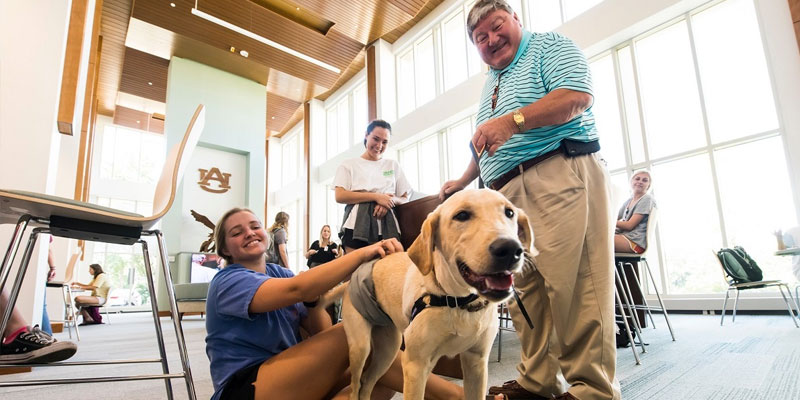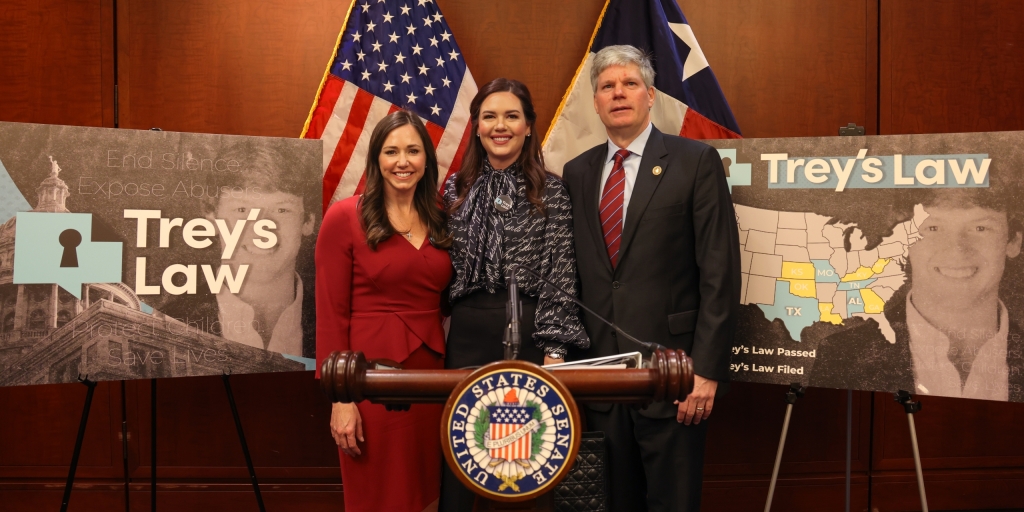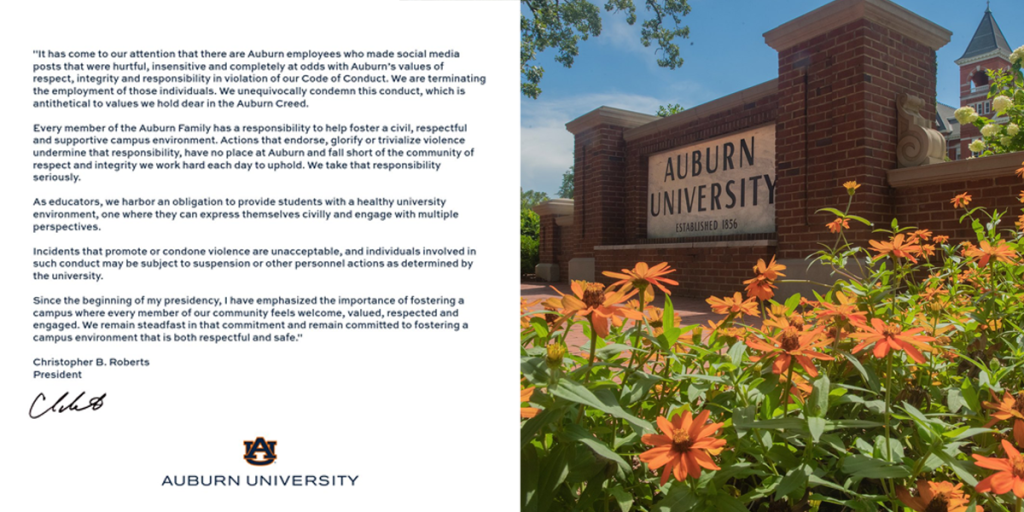Researchers in the Auburn University School of Nursing found animal-assisted therapy promotes social engagement among adults with dementia or other cognitive impairments.
Assistant Professor Morgan Yordy and Associate Clinical Professor Stuart Pope studied the possible benefits with the school’s therapy dogs — Miller, Choa and Daisy — at a community respite ministry at Auburn United Methodist Church. REACH, or Refresh, Encourage, Activities, Care, Hope, is for people with early to moderate memory issues.
As the number of older adults rises, so does the prominence of dementia. The Alzheimer’s Association reports 5.8 million Americans are living with Alzheimer’s disease. By 2050, the association projects the number to rise to nearly 14 million.
Health care professionals and caregivers must be prepared to assist this growing and vulnerable population with activities of daily living. Auburn researchers anticipated animal-assisted therapy would be an effective strategy in promoting communication and social engagement.
Yordy, Pope and Chih-hsuan Wang, an associate professor in Auburn’s College of Education, authored a paper, which was recently published in Nurse Educator, a scholarly, peer-reviewed journal for faculty and administrators in schools of nursing and nurse educators in other settings. The trio also published a paper in the Journal of Nursing Education and Practice, an international peer-reviewed and open-access journal for nursing specialists.
Auburn’s animal-assisted therapy program, CAREing Paws, or Canine Assisting Rehabilitation and Education, is believed to be the only animal-assisted therapy program of its kind in a nursing school setting.
By including the dogs on a clinical site experience, Yordy and Pope observed the engagement between participants with dementia and the animals, as well as student engagement and comfort level when working with such participants and animals together.
They called the project COPE, or Canine Outreach Promoting Engagement, and received funding from a Competitive Outreach Scholarship Grant through Auburn University’s Outreach Office of Faculty Engagement.
“Students were significantly more comfortable and more effective in their communication with participants when the animals were included in the community clinical experience,” Yordy said. “Patients were more engaged in the presence of animals.”
“Individuals who have early dementia, when they participate regularly in a program that focuses on socialization, music therapy, pet therapy, community relationships, typically what we have noticed is that their cognitive decline slows a little bit,” added Christine Browdy, REACH director.
Pope created CAREing Paws in 2010, knowing the empirical benefits therapy dogs have on patients. It has also given nursing students the opportunity to learn about the alternative therapy through classroom teaching and clinical experiences.
The stars of the program are Miller, a 7-year-old golden retriever; Choa, an 8-year-old Labrador retriever golden mix; and Daisy, a 2-year-old Goldendoodle.
“Our nursing students learn that the human-animal bond helps patients heal emotionally, socially, mentally and physically,” said Pope. “Students leave Auburn with a degree in nursing and also the understanding of what animal-assisted therapy can do in diverse health care settings.”
Yordy and Pope began collaborating on animal-assisted therapy research soon after Yordy joined the school’s faculty in 2016. However, she has been a part of animal-assisted therapy teams since 2011.
“I have loved working with animals and people, and I knew this was where I wanted to grow my research,” said Yordy. “There is little research out there regarding dogs in academics and I would like to further this exploration.”
Currently, Yordy and Pope are the only dog handlers at the School of Nursing, but students who complete the animal-assisted therapy course can handle the dogs.
This story originally appeared on Auburn University’s website.













